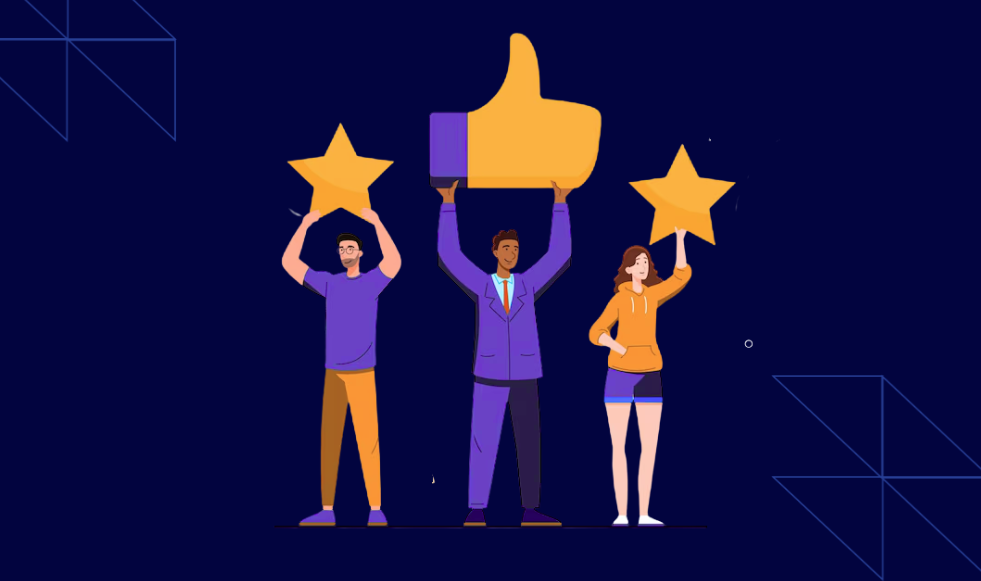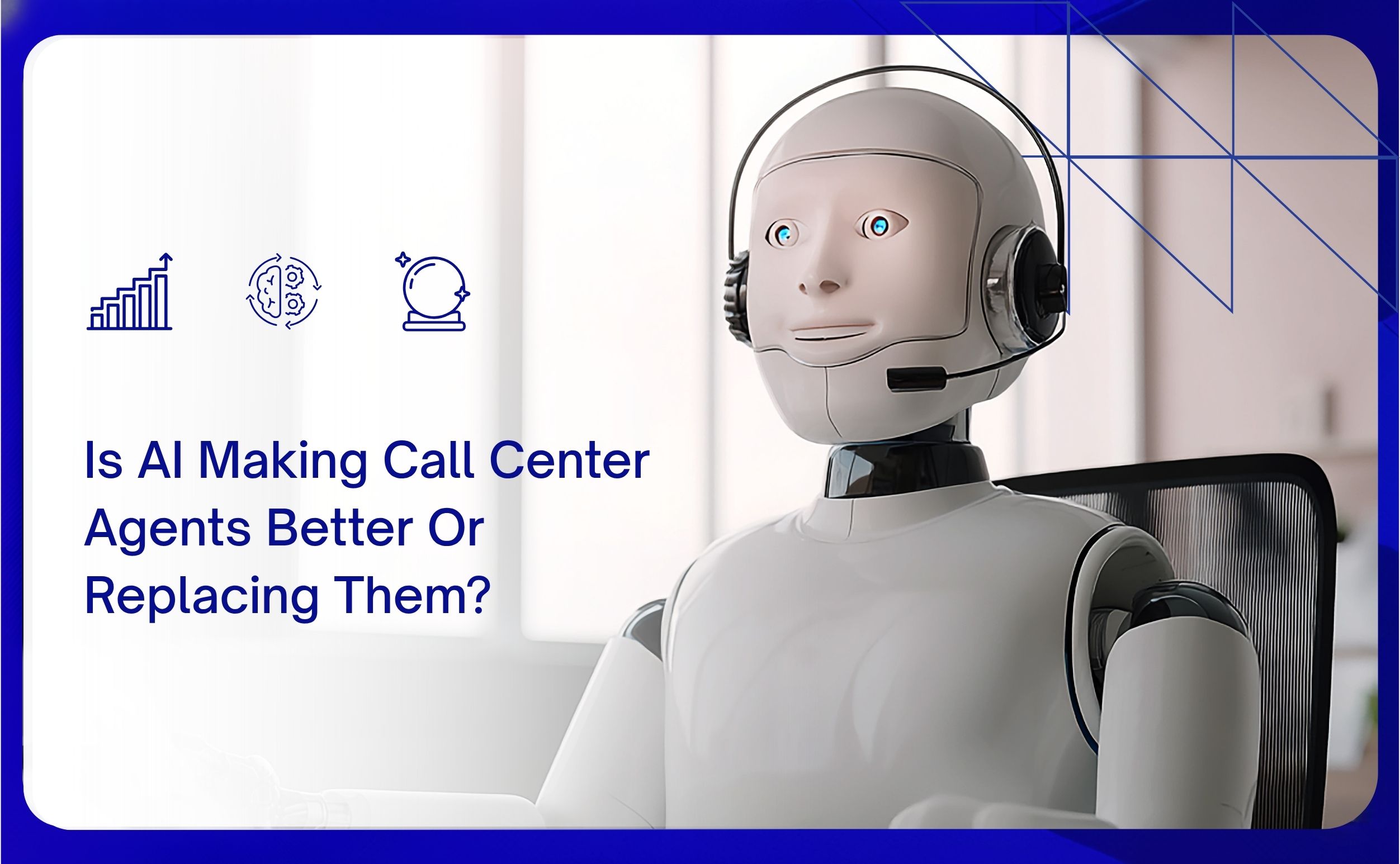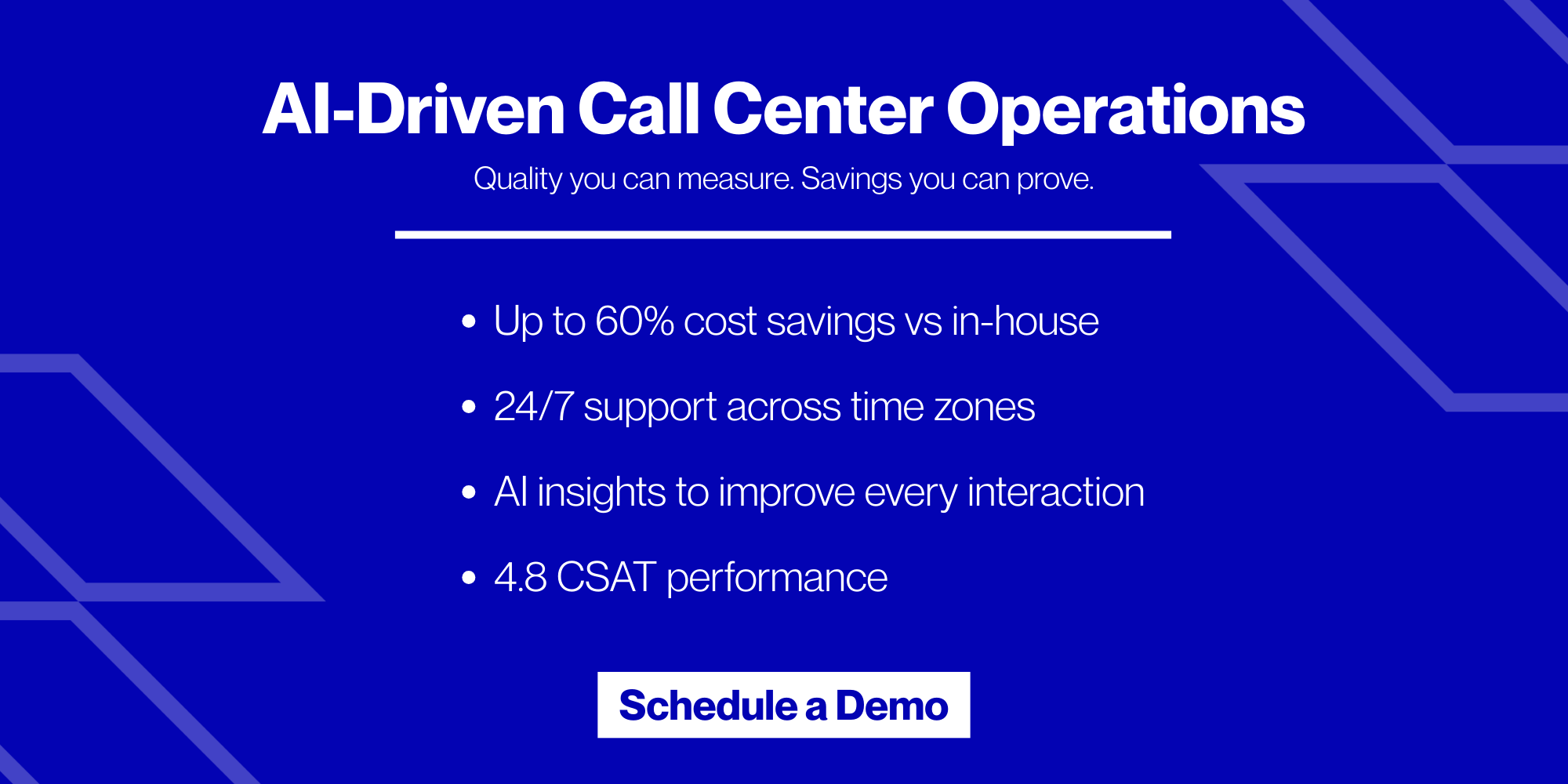AI in call centers has been instrumental in modern times to enhance employee efficiency and thereby reduce operational costs. The question of whether AI is making CX jobs redundant or improving their quality is a subjective one. Let us take a look at two facts that might help us understand this better:
- The talk about AI replacing agents has to be taken with a pinch of salt. Rather, they are automating some repetitive, routine jobs.
- In doing so, they are definitely contributing to a positive way to human skills because CX agents now collaborate better among themselves and are more productive with their work.
Thus, AI is not going to take away jobs, given that employees are ready to upskill so that they can accommodate AI presence in the work process. Let us take a look at some hard facts to understand how the market feels about AI-augmented business operations:
- For most tier 1 enquiries, that is the easiest tier based on the difficulty of resolution. Businesses often achieve 40-60% success with AI customer support processes
- 75% of CX leaders feel that AI can enhance human intelligence, thus bringing more value to the cx services
Therefore, the point is that your business can resolve more tickets, bringing more efficiency to work processes, and increasing customer satisfaction and annual revenue by integrating AI in CX in 2025.
In this article, let us take a look at what human-AI collaboration can bring for a business, and in what ways AI is improving the performance of CX agents.
What Does an AI-Human Collaboration Mean For a Business?
While conversational AI takes care of repetitive tasks, human agents can free up more time to work on higher-value work that can make a difference in brand value. Solving complex tasks takes time to be rendered with precision, and AI facilitates the coordination between the right experts to ensure that the quality of work remains a priority.
| Aspect | What It Means for a Business |
| Efficiency | AI automates repetitive, data-heavy tasks, freeing humans to focus on creative problem-solving. Moreover, the actionable data provided by AI can be put to use by the human agent to strategize better. |
| Decision-Making | AI provides real-time insights and predictions, while humans apply judgment, ethics, and contextual understanding. Although with the advancement in machine learning processes, AI is getting better at recognizing context and tone of interactions. |
| Customer Experience | AI handles quick responses (chatbots and FAQs), while humans step in for empathy-driven interactions that require critical thinking to achieve the best business outcomes. |
| Innovation | AI accelerates data analysis and trend spotting, while humans are more effective in devising new ideas, design, and strategic direction. |
| Scalability | AI enables businesses to scale processes according to a pre-decided plan, while humans ensure adaptability, personalization, and brand values remain intact. |
Therefore, it is quite clear that an optimum human-AI collaboration is essential to achieve call center automation for better handling of business operations. In 2025, customers do not care who does the work; rather, it is the convenience and service quality that is the ultimate product that brands can offer.
What Improvements Does AI Bring to CX Agent Performance in 2025?

AI in call centers makes sure that agent augmentation takes place in terms of efficiency and productivity. Automation in the regular processes has ensured that human agents working tirelessly at the call centers can be productive rather than have their hard work go to waste. Moreover, working with AI processes has brought more dexterity in the working methods of CX agents. Let us take a look at how human CX agents have improved in terms of performance quality in 2025.
Efficiency and Productivity
Human agents can focus more on critical thinking thanks to the time they save from not having to indulge in tiresome, repetitive processes. Thus, companies stand the chance to gain high-value orders and extend their presence beyond a niche market. CX efficiency is of paramount importance because 61% customers tend to discontinue with a brand after a bad experience with customer support. Furthermore,
- Human agents become accustomed to delivering quality work while handling more ticket volumes, thanks to quick sentiment analysis and context recognition by AI technology
- With follow-up reminders and transcribed calls, agents do not have to worry about a missed process while they give their 100% in the work that they are pursuing
In 2025, human agents are not only expected to deliver their absolute best but to build their skills around AI automation. Thus, businesses transform an entire workforce and tailor their skills in the best way possible for practical use in the market.
Customer Satisfaction
Customer satisfaction is an area that needs to be prioritized by businesses, and continuously strive for excellence. While 34% people feel that AI use in CX is satisfactory, 41% still opine that there is room for improvement. That is a strategy that companies must dig into and devise better strategies to change that stat. The use of AI in call centers can change the fundamental ways in which customer service functions, by facilitating
- Hyper-personalization: By processing real-time data, AI makes sure that it gathers maximum data points on a customer to predict their behavior. The human agent then further fine-tunes the content and approach of sales pitches so that the customer feels that they are being directly addressed by a brand. Such a feeling can boost their self-esteem and increase the chances of their favorably responding to a telemarketing call.
- Accuracy: AI-augmented services maintain top-level accuracy in the transfer of data. However, accuracy is a process checkpoint in CX, and not something that directly brings results. The human agent uses this accurate information to implement strategic decisions made by the team lead or project manager for the best outcomes, whether it is lead generation or customer onboarding.
- Multichannel Support: Multichannel support is the best example of human-AI collaboration. Think of it in this way – the chatbot solves multiple problems for a customer but fails to do it once, and immediately connects an outbound call to solve the query. If the AI system is successful in picking out the right executive for the purpose, it could be a smooth customer service experience for the client.
Operational Benefits
Businesses can avail several operational benefits, such as cost reduction, through an effective human-AI collaboration. The fast resolution of tier-1 enquiries can lead to far fewer tickets for CX agents to handle, so that they
- Can focus better on the work they have at hand
- Do not get demotivated and bogged down by the work that needs to get done
- Can work with better mental health conditions, resulting in their overall well-being
These employee benefits have way more positive effects on a business than meets the eye at first glance. With more satisfied employees, the business will likely
- Have lower attrition rates, which means employees are likely to stay at the organization for prolonged periods, bringing more value to CX work
- Spend less on HR and new employee training
- Attain more customer satisfaction even when scaling at a fast rate, as they will still maintain a standard of CX
Therefore, human-AI collaboration will not only improve employee performance but also help businesses attain better financial health through multiple avenues.
Concerned with the Perfect Human-AI Combination for Your Business Operations? Partner with Atidiv and Rest Assured!
Finding the perfect AI-human combination is a tough task to accomplish because designing a test with that objective while hiring employees is a challenging task. In that case, it is a good idea to delegate this task to a trusted third-party outsourcing brand like Atidiv. Working in the industry for more than a decade and a half, Atidiv has served 20+ industries and helped them make savings of more than USD 500 million in in-house costs!
Take a look at some of the most significant perks and privileges of joining hands with Atidiv:
- Complete CX focusing on customer engagement, lead generation, revenue funneling, and conversion rates
- CX team that chases excellence in terms of customer retention and brand loyalty rather than filling up call quotas
- Assured data security and privacy protection, keeping in line with the existing legal norms
- AI-integrated CX systems that set reminders for customer follow-ups and routine communications to build rapport
- CRM syncing with tools like Salesforce for complete datasets on sales performances that could inform future strategies
Get on a call with us today and enjoy superior services like live chat outsourcing, email support, outbound call center services, and more!
FAQs on Is AI Making Call Center Agents Better Or Replacing Them?
1. How can customer satisfaction contribute to better RoI for my business in 2025?
Customer satisfaction with customer service can encourage more sales and potentially customer referrals. Therefore, achieving good customer satisfaction can not only help you get better customer retention and reduce churn, but it can also increase your customer base. Collaborating with a brand like Atidiv could ensure that you earn good RoI on your investments in call center outsourcing, which is already considerably less than having an in-house CX team.
2. Can AI really make CX agents more productive?
Yes, absolutely. CX agents can collaborate better and get their work assigned in real-time, thanks to AI, and thus, they can be more meaningfully productive. In the absence of AI, they would still be hardworking and productive, but with way less actual effect on customer satisfaction and the revenue earned by companies.
3. When I decide to scale up, how can a good human-AI collaboration work in my favor?
Yes, it can, and it most probably will. Outsourcing agencies maintain a good AI-human collaboration so that they can always have an optimum workforce on any project. When you need to scale up, the onus will be on them if more employees need to be deployed at your service. In any case, you will not be responsible for salaries or benefits for employees, because essentially, you will be paying for a service.

